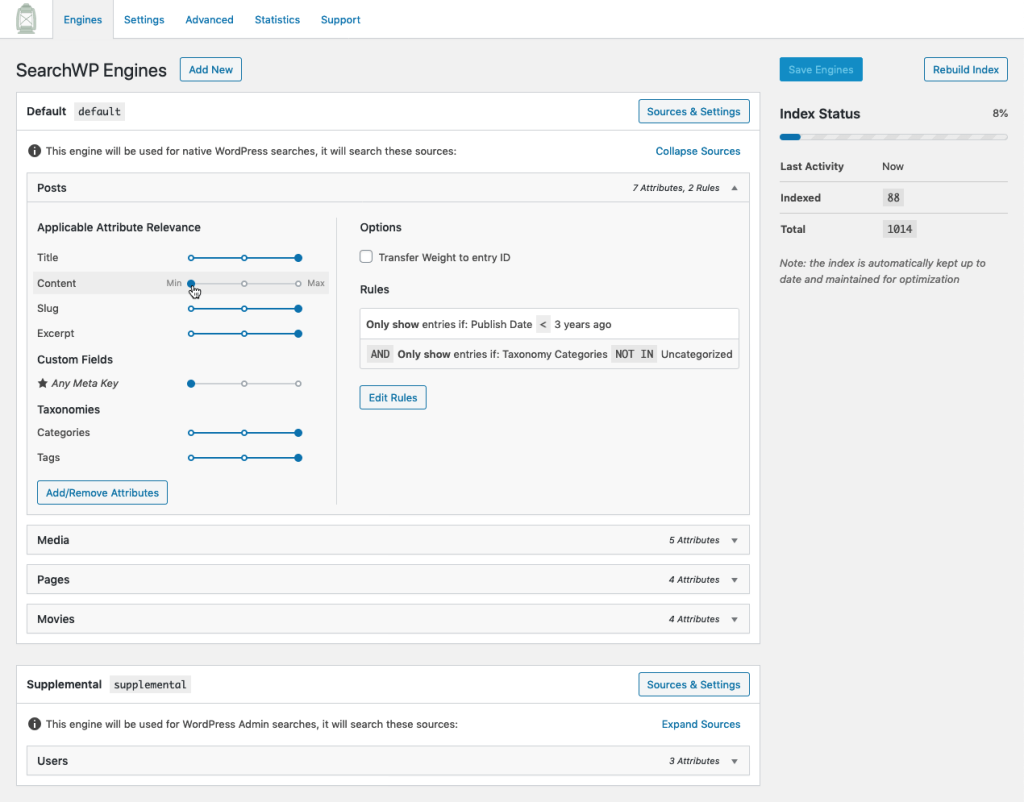There is one ubiquitous and powerful field on modern websites. Yet, many organizations fail to recognize its potential for collecting valuable user data. And no, it’s not the newsletter subscription form. It’s the site search.
Site search: More than a utility feature
According to a 2022 Forrester study, 43% of retail customers go straight to the search bar on a website, while as many as 68% of shoppers would not return to a site that provided a poor search experience.
It is clear that search is more than just a utility feature that website visitors expect. It is an essential tool for marketing and UX teams to leverage. But what kind of insights can we gather from this field?
One field, many opportunities
Capturing and logging the search keywords that users type into your site search field can be a valuable source of content ideas. By analyzing these search queries, you can gain insights into what topics generate interest among your audience and produce related content.
Furthermore, analyzing search keywords can also uncover potential gaps or missed opportunities in your offerings. Suppose users consistently search for terms related to a specific feature or benefit that you currently don’t highlight prominently. In that case, consider incorporating it into your messaging or even engaging in user research to find out if you could offer a new product or service to meet their needs.
Equally important is discovering the content users are not finding on your site. By examining the search queries that yield no or unsatisfactory results, you can identify omissions or information architecture issues in your content. This knowledge empowers you to make informed decisions about adding metadata (like categorization), or writing more about a specific topic.
Finally, combing through your site search queries is a way to discover how your users are talking about your product or service. Indeed, the words you use in your copy, instructions, or support documents might not match your users’. Even if you intend to use the right words, it might come off as jargon to your audience. The words folks use to search on your site are a window into their mental model, and by using them, you sync your worldview with theirs. Collect, analyze, and integrate these words in your site copy, ads, or social posts to see a greater organic engagement.
Combing through your site search queries is a way to discover how your users are talking about your product or service.
Getting started with site search
You can start collecting site search queries in various ways, but here are three—two of which are free.
A WordPress plugin
One of the most popular WordPress plugins to enhance site search is SearchWP. This ecommerce-friendly plugin supports documents, custom fields, taxonomies, and more. With standard, pro, and agency plans, their pricing structure makes improved site search accessible to many.

Capturing site search via Google Analytics
Do you use Google Analytics on your site? With a market share of more than 80%, chances are Google Analytics is collecting data on your site right now, and you’re already relying on this data to make better decisions.
The good news is that Google Analytics can help monitor your site search data, too. In its latest version, GA4, Google Analytics allows you to set custom explorations to target traffic that hits your search result page and capture search terms.
If you use Google Tag Manager (GTM) in combination with Google Analytics, you could leverage more advanced techniques like setting up a GTM variable or scraping the page’s DOM for CSS selectors or copy.
Related links
Third-party tools
Over the past few years, third party tools have understood the importance of the insights that can be found in search results as well as the impact of a superior search experience. These tools augment the search capability of a website considerably while providing marketing teams with valuable data. They help with the hard work of extracting insights from the data.
Tools like Algolia, for example, specialize in search and discovery and are often powered by AI. The approach is different from a plugin, though, since this solution is a hosted search engine that relies on its API to index your content and serve search results (including recommendations). Although Algolia has no official WordPress integration, you can build your own with the PHP API client. Currently, Algolia offers a free Build plan that includes 10,000 search requests/mo and 1 Million records.

Ethical considerations
Ethical considerations play a crucial role in ensuring data privacy and protection when it comes to collecting and using user data from the search field. Companies must have transparent data usage policies with the increasing number of data privacy regulations, such as the General Data Protection Regulation (GDPR).
One of the key ethical considerations is obtaining informed consent from users before collecting their data. Users should be fully aware of what information is being collected, how it will be used, and who will have access to it.
Transparent communication about data collection practices helps build trust between companies and their users.
Another important aspect is the implementation of anonymization techniques. Anonymizing user data ensures that personally identifiable information (PII) is removed or encrypted, making it impossible to identify individuals. This protects user privacy while still allowing companies to gather valuable insights from aggregated data.
Companies should also regularly review their data handling practices to ensure compliance with evolving privacy regulations and industry standards. This review should include periodically updating their policies, conducting internal audits, and training employees on responsible data handling.
By prioritizing ethics in collecting and using user data from the search field, companies can maintain trust with their users while benefiting from valuable insights that can improve products and services.
Next step: Site search analysis
Once you have collected enough data (following your local data privacy regulations, see Ethical considerations), then comes the analysis. What you’ll be looking for in the data depends on your specific use case and need: Are you trying to improve your content? Are you trying to peek into your user’s mental model and adopt their language?
Note, though, that the technology you use could make it easier or harder to extract insights from your site search data. For example, if you opted for SearchWP, the Metrics extension offers this kind of analysis, including popular searches, content ranking low but with a high number of clicks, etc. And while Algolia offers a solid dashboard that lets you dig through analytics, A/B Testing, AI synonyms, and more, the insights you’ll gain from Google Analytics will depend on your ability to read and interpret raw data.
Are you ready to discover insights in your site search data? Or do you feel stuck? We’re here to help set you up for success. Reach out today to book a call.




